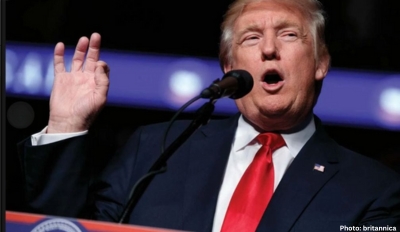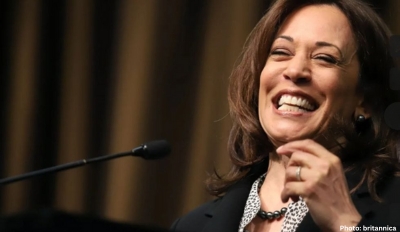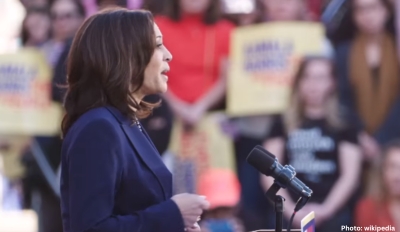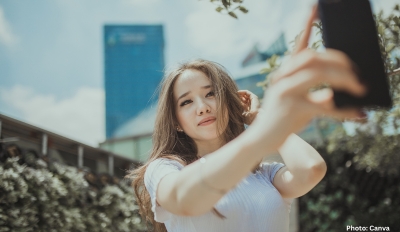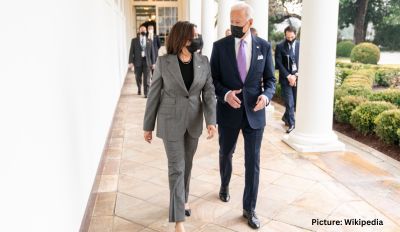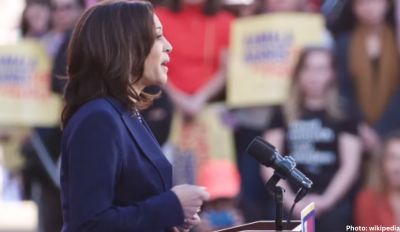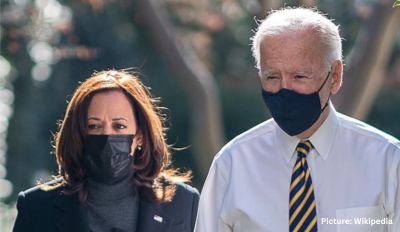“My name is pronounced “comma-la”, like the punctuation mark,” Kamala Harris writes in her 2018 autobiography, The Truths We Hold. The California senator, daughter of an Indian-born mother and Jamaican-born father, then explains the meaning of her Indian name. “It means ‘lotus flower’, which is a symbol of significance in Indian culture. A lotus grows underwater, its flowers rising above the surface while the roots are planted firmly in the river bottom.”
The Vice Presidential Candidate, Kamala Harris’s public image has been more tied to her identity as an African-American politician, especially recently during the current conversation around race and the Black Lives Matter movement in the US.
But Indian-Americans also view her as one of their own, her candidacy suggesting a potential wider recognition of the Indian and South Asian communities in the country. It is clear that her late mother was a big inspiration for Kamala Harris. Shyamala Gopalan was born in the southern Indian city of Chennai, the oldest of four children.
The speech at the Democratic National Convention on Wednesday created a buzz on social media among the Indian-American and Tamilian community after she gave a special shoutout to her “chithis” while emphasising the importance of family. Tamil word ‘chithi‘ means aunt.
Harris, who made history by being the first Black woman and the first woman of Indian descent to contest US elections on a major party’s ticket, made the remark during her vice-presidential acceptance speech. In her speech, Harris spoke about the importance of family support in shaping an individual.
“She raised us to be proud, strong Black women. And she raised us to know and be proud of our Indian heritage. She taught us to put family first. The family you are born into and the family you choose,” said Harris while talking about her mother Shyamala Gopalan Harris. Describing what family means to her, she said, “Family is my uncles, my aunts, and my chithis”.
For many Tamil Americans, Kamala Harris’s use of the phrase chitti was a small but significant way for the vice-presidential candidate to say, before an audience of millions, that she is one of them, too. As she accepted the Democratic nomination for vice president last week, California Sen. Kamala Harris recounted how she had been taught to “put family first.”
That covers both “the family you’re born into and the family you choose,” she said. Family is her husband, she said, and her two step-kids. Her sister, her sorority, her best friend, her godchildren. And then, she added, “Family is my uncles, my aunts and my chittis.” That last word, a Tamil term of endearment for the younger sisters of one’s mother, was met with a fierce outpouring of pride across social media.
For many Tamil Americans, Ms Harris’s use of the phrase – which can also be spelled out phonetically in English as “citti,” “chitthi” or “chitthi” – was more than just another word for “auntie.” It was a small but significant way for the vice-presidential candidate to say, before an audience of millions, that she is one of them, too. “Americans everywhere are googling ‘chitthi’ but @KamalaHarris we know,” Gautam Raghavan, a former Obama White House staffer, wrote on Twitter. “And we love you for it.”
By now, the basics of Ms Harris’s Black and South Asian identity are familiar: Born to a Jamaican father and an Indian mother who met as graduate students, she was raised to appreciate her Black and South Asian heritage but prefers to call herself simply “American.”
Yet less commonly acknowledged in that biography is the regional heritage of her mother, Shyamala Gopalan, in Tamil Nadu, a South Indian state whose majority ethnic group is known for a deep pride in its distinct language and culture.
More than 240,000 people in the United States speak Tamil at home, according to census data, and a growing number of Tamil Americans – including Google CEO Sundar Pichai, actress Mindy Kaling, and Rep. Pramila Jayapal, D-Wash. – have risen to national prominence in recent years.
In 2015, the comic Aziz Ansari featured lengthy snippets of Tamil dialogue during a much-celebrated episode of “Master of None,” when his real-life parents appeared on the show to played his fictional ones. But there’s nothing quite like prime-time politics.
“A Tamil word in an acceptance speech at the Democratic National Convention. Still blows my mind,” wrote Hari Sevugan, the former deputy campaign manager for Pete Buttigieg. “Despite this president, ‘only in America’ is still a thing.”
As her multiracial heritage challenges American notions of identity, and some have accused Harris of playing down her South Asian roots – or merely not playing them up as much as her Black identity – her use of “chittis” was a swift reproach.
“My Indian mother knew she was raising two Black daughters,” the candidate told the Los Angeles Times in 2015. “But that’s not to the exclusion of who I am in terms of my Indian heritage.”
After her parents’ divorce in the early 1970s, Harris often traveled as a child to visit relatives in Chennai, the Tamil Nadu city where her maternal grandparents had settled. She wore saris to family events and spoke Tamil with her relatives, the Times reported.
In her autobiography, Kamala Harris described how her mother would often use Tamil around the house to express “affection or frustration.” Her use of the word chitti is a reflection of the family structures and specific language used by Brahmin Tamils, a group that includes Gopalan and her family in India, said Vasu Renganathan, a lecturer in Tamil at the University of Pennsylvania.
The combination of linguistic Tamil roots that mean “little mother,” it can also be used to refer to a stepmother or even a friend of one’s mother who is a bit younger than her. A popular Tamil soap opera called “Chitti,” which first aired 20 years ago, tells of the relationship between a young girl who loses her mother and the woman she begins to treat as a maternal figure.
Hours after Harris’s speech, Renganathan told The Washington Post he was disappointed that Harris did not sprinkle in more Tamil phrases.
“Tamils are passionate about their homeland, and many want to identify themselves as Tamil in order to distinguish from North Indians or other South Indians,” he said. “She could have at least talked about her ‘amma,’ her own mother.” But, he added, it’s only a matter of time before she uses more Tamil on the campaign trail.


